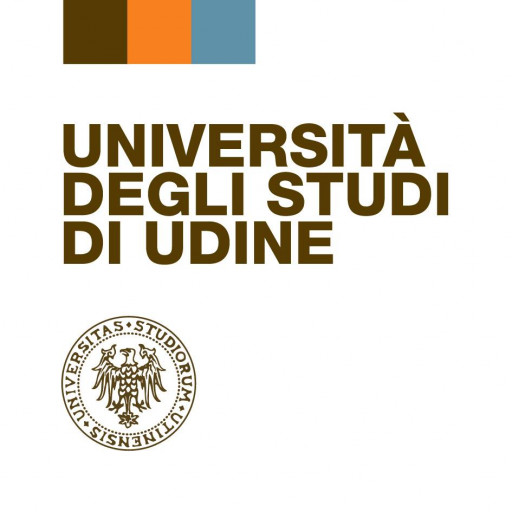Photos of university / #dukeuniversity
Electrical and Computer Engineering at Duke University offers a comprehensive and rigorous academic program designed to prepare students for leadership and innovation in the rapidly evolving fields of electrical and computer engineering. This program combines foundational coursework with cutting-edge research opportunities, enabling students to develop a deep understanding of core principles while exploring emerging technologies. Students can specialize in areas such as integrated circuits, signal processing, control systems, communications, computer architecture, and machine learning. The curriculum emphasizes both theoretical knowledge and practical skills, ensuring graduates are well-equipped to tackle real-world problems across various industries, including technology, telecommunications, aerospace, and healthcare.
The program provides access to state-of-the-art laboratories and research facilities, fostering an environment of collaboration and discovery. Faculty members are distinguished researchers and industry experts who mentor students through individual projects, thesis work, and interdisciplinary initiatives. Students are encouraged to participate in research that addresses important societal challenges, such as energy efficiency, cybersecurity, and sustainable development. The program also offers various professional development resources, including internships, industry partnerships, and leadership training, to enhance students' career readiness.
Duke’s Electrical and Computer Engineering program emphasizes innovation, sustainability, and ethical responsibility, ensuring graduates not only possess technical expertise but also the ability to influence positive societal change. With a diverse and inclusive community, the program provides a vibrant environment for learning, collaboration, and personal growth. Whether pursuing careers in academia, industry, or entrepreneurship, students are empowered to become pioneers in electrical and computer engineering, shaping the future of technology and society.
The general requirements and departmental requirements for a B.S.E. with the electrical and computer engineering major requires the completion of 34 distinct courses which are composed of:
- WRITING 101(20), during the first academic year
- 5 elective Social Sciences or Humanities courses, appropriately distributed
- A 6-course mathematics and probability/statistics sequence (MATH 111L(31L), 112L(32L), 212(103), 216(107) & 353(108), and a Statistics Elective: one of {STA 130(113), MATH 230(135), ECE 380 or ECE 555(255)})
- 4 natural science courses: CHEM 20(18), 21(19), or 101DL(31L); PHYSICS 151L(61L) and 152L(62L); and BIOLOGY 20(19), 201L(101L), 202L(102L), 275A(144), or 311(147)
- 2 foundation courses in engineering computation: EGR 103L(53L) and COMPSCI 201(100)
- 5 foundation courses in electrical engineering: ECE 110L(27L), 230L(51L), 250L(52L), 270L(53L), and 280L(54L)
- 4 approved ECE Concentration Electives, in two different areas with at least two courses in one of the elected areas
- 2 Elective ECE Courses at the 300-level or above
- An approved ECE Design Elective
- 4 Free Electives
First Year
- EGR 103L (53L) Computational Methods in Engineering
- ECE 110L (27L) Fundamentals of ECE
- Math 111L (31L) Introductory Calculus I
- Math 112L (32L) Introductory Calculus II
- Chem 101DL (31L) Core Concepts in Chemistry
- Physics 151L (61L) Introductory Mechanics
- Writing 101(20) / Social Science or Humanities Elective 1
- Social Science or Humanities Elective 1 / Writing 101(20)
Sophomore Year
- ECE 280L (54L) Signals and Systems
- ECE 230L (51L) Microelectronic Devices and Circuits
- COMPSCI 201 (100) Data Structures and Algorithms
- ECE 250L Computer Architecture
- Math 212 (103) Multivariable Calculus
- Math 216 (107) Linear Algebra & Differential Equations
- Physics 152L (62L) Intro Electricity, Magnetism, Optics2
- Biology Elective3
- Social Science or Humanities Elective 2
- Social Science or Humanities Elective 3
Junior Year
- ECE 270L (53L) Electromagnetic Fields
- ECE Elective 15
- ECE Concentration Elective 14
- ECE Concentration Elective 2
- Math 353 (108) Ordinary & Partial Differential Equations
- Statistics Elective6
- Social Science or Humanities Elective 4
- Social Science or Humanities Elective 5
- ECE Elective 2 or Approved ECE Design Elective7
- Approved ECE Design Elective or ECE Elective 2
- ECE Concentration Elective 3
- ECE Concentration Elective 4
- Free Electives
- Common Application or Coalition Application
- Early Decision Agreement
- Secondary School Report with Counselor Recommendation
- High School Transcript
- Two Teacher Recommendations
- First Quarter Grades
- Midyear Grade Report
- Final Transcript
- SAT (Two Subject Tests strongly recommended) or ACT with Writing
- IELTS (International English Language Testing System) Minimum band score expected: 7
- PTE Academic (Pearson Test of English) Minimum score expected: 70
- TOEFL (Test of English as a Foreign Language) Minimum scores expected: 100 on the internet-based TOEFL, 600 on the paper-based TOEFL
Scholarships
Duke University will meet full demonstrated financial need for a limited number of international students. Each year Duke expects to enroll 20-25 first-year foreign citizens who receive need-based financial aid and/or merit-based scholarships. There is no need-based aid for international transfer applicants.
The Electrical and Computer Engineering (ECE) program at Duke University offers students a comprehensive curriculum that covers fundamental and advanced topics in electrical engineering, computer engineering, and related fields. The program is designed to prepare students for careers in industry, research, and academia by providing a rigorous education that combines theoretical knowledge with practical application. Students in the program have opportunities to engage in cutting-edge research projects, collaborate with faculty members who are leaders in their fields, and participate in internships and cooperative education experiences. The curriculum includes core courses in circuit analysis, signal processing, microelectronics, computer architecture, embedded systems, and communication networks. Additionally, students can choose from a variety of electives to specialize in areas such as robotics, cybersecurity, machine learning, data science, or renewable energy. The program emphasizes a strong foundation in mathematics, physics, and computer science, enabling graduates to solve complex engineering problems and innovate in emerging technologies. Duke University’s ECE department benefits from state-of-the-art laboratories and research facilities, fostering an environment of innovation and discovery. The program also encourages interdisciplinary approaches, allowing students to combine electrical and computer engineering with studies in biomedical engineering, environmental science, and other related disciplines. Graduates of the program are well-prepared for advanced study in graduate schools or for professional careers in industry, government, and entrepreneurial ventures. The university’s location and its strong connections with technology companies provide ample networking and employment opportunities for students. Overall, the Duke University Electrical and Computer Engineering program aims to produce versatile engineers capable of addressing the technological challenges of the future through rigorous education, research, and practical experience.










